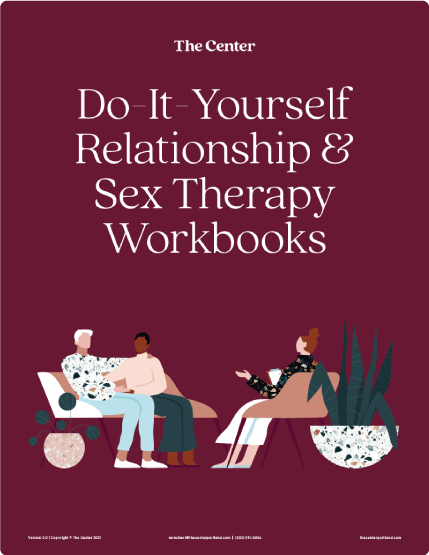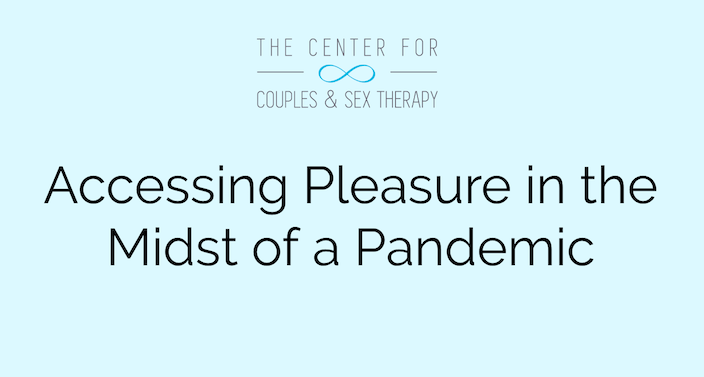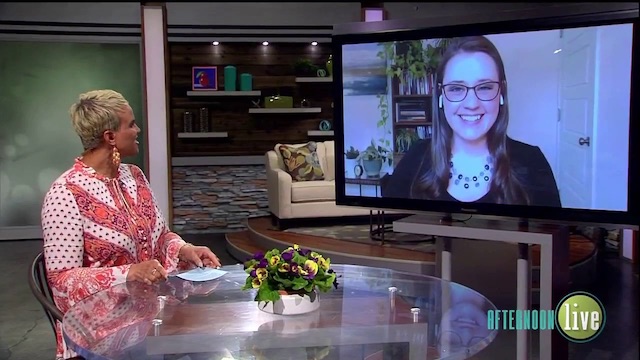This is a really challenging time for all of us. There is so much change, uncertainty, loss, and fear that many of us are feeling. Part of the loss we are collectively experiencing is the loss of connection to those we love because of social distancing measures. For ethically non-monogamous folks, these measures may result in being distant from partners, polycules, and community. Today I want to share some support for those of you in that position. If you are feeling a sense of loss and sadness from not being able to connect with all of your partners and your non-monogamous community, this blog is for you.
I want to offer you 3 steps for maintaining connection during this time of physical distance. The first step requires you to go inward, to reflect on your feelings and to get clarity on your needs. The second step is all about communicating what you discover as you reflect with your partners/community. And the final step is about finding creative ways to cultivate connection in your relationships. As you read through these steps, I encourage you to take your time to notice what comes up for you. We usually read through blogs and articles quickly to pick out the pieces of information we want to hold onto. And while this makes sense, I encourage you to give yourself more time to allow more time for reflection, curiosity and introspection.
1. Get in touch with what you are feeling
It is common to get stuck in a place of emotional avoidance when we are living in a crisis. I want you to know that it is okay to need to avoid or escape some of these feelings when we are in a trauma response. I also want to encourage you to create some space to check in with yourself and your feelings when you feel grounded. If you need some support with ways to get grounded, check out our free webinar about managing stress during the crisis here.
To start with, give yourself some space to check in on how you’re feeling about all of the change happening in the world and in your life. Consider the ways you are impacted by this crisis, how you are coping with these changes and what emotions come up for you. This is a really significant thing to be living through! It makes sense that you may feel shock, loss, sadness, anger, fear or hope. You may also be feeling a variety of other emotions. A resource I really appreciate for diving into your emotional experience is the emotion wheel. Go ahead and take a moment to google this so that you can see the image. This tool allows you to expand the language you have for understanding and communicating your emotions.
Once you have a sense of how you’re emotionally impacted by the crisis, you can also check in to see how you’re feeling about your relationships. I want to offer you some journaling prompts you can use to explore your feelings around your relationships during this crisis:
- How are my relationships being impacted by this crisis?
- What are the ways that I typically connect with my partners or community that don’t feel accessible right now?
- What emotions come up for me around the distance, loss of connection and/or shifts happening in my relationships?
- What are the ways that I connect with partners or community that do feel accessible right now?
- What capacity do I have to connect with them at this time?
- What are my hopes for connection right now?
2. Communicate these feelings with your partners & community
Once you have a sense of your feelings, wants, needs and hopes, I encourage you to bring these reflections to your partners and community. There may not be much that you can do together to resolve these feelings, but giving them space and receiving support is powerful and connecting. With this shared understanding of each other’s feelings, wants, needs and hopes you can more intentionally come together to identify creative strategies for showing up for each other.
If you find that communication feels challenging, leads to conflict or results in misunderstanding, reflective listening is a helpful framework. Reflective listening is a framework that requires you to slow down, actively listen to each other, and invite empathy/compassion. Here’s how it works:
Person 1: Share your emotional experience and thoughts without focusing on content. Use “I” statements and do your best to avoid naming your partner’s experience or making accusations.
Person 2: Thank your partner for sharing and then do your best to reflect what you heard (such as “I hear you saying _______”). You are providing a summary but not sharing your reaction or what has come up for you yet. This is also an opportunity to ask questions such as “can you tell me more about ______?” or “can you share what you mean when you say ______?”. Then check in to see if you missed anything or if your partner wants to share anything else.
Person 1: Add anything you want your partner to know or affirm that everything you want space for was heard.
Person 2: Now you’ll share compassion or validation for your partner and their experience. When this is challenging, remember that you care for them and their emotional experience.
Person 1: Share how it feels to hear compassion or validation from your partner.
Then you can switch! You can switch back and forth as many times as feels helpful. At the end of this check-in, share with each other how it felt to slow down and hold a lot of space for each other. It’s okay if this felt challenging, awkward or frustrating! It is often a new way of connecting and requires lots of vulnerability and holding back. You may also find that this felt connecting, safe or comfortable. Remember to highlight when you have a shared experience or feel more connected.
3. Find creative ways to connect
The reality is that we have to maintain physical distance during this time. And yet, humans are incredibly resilient and creative. I encourage you to get creative about finding ways to connect. Think about what you typically enjoy doing and appreciating sharing with your partners or community. Then consider if there are any creative ways to bring some of those elements to virtual connection.
In order to feel that you can fully sink into these experiences, you may need to set boundaries with those you live with (if you do) in order to get the space you want and need. When setting boundaries, I encourage you to use the framework of compassionate assertiveness. Compassionate assertiveness is all about finding a balance between compassion and assertiveness. For example, if you want to request that your nesting partner give you space and time to have a date with your other partner you could share: “I really appreciate you and the time we are sharing. And I also am hoping to get some private space to have a virtual date with _______. Some boundaries that would help me feel comfortable experiencing this date fully are ________. I want to honor and hold space for how this feels for you and I also want you to know how important this is to me.”
Here are some ideas for maintaining connection with your partners/community:
- Video chatting (group video chats to maintain open communication about all of your relationships, video dates with your partners, video chats with community members to share your experiences, etc.)
- Virtual sexual connection (video chat sex dates, sexting and phone sex are wonderful options for maintaining sexual connection and they may even be exciting and new!)
- Plug into online community spaces (Facebook groups for ethically non-monogamous folks, virtual workshops for your community, Instagram pages, etc.)
- Setting up shared experiences from a distance (Watching the same movie at the same time, making the same meal that you can enjoy together, etc.)
I hope that these tips are helpful for you! I understand how important it is to maintain connection during this time and I hope you are able to create a plan for this after reading this blog. If you find that you need more support than this blog can offer or that there are additional challenges or barriers in your relationships, you may benefit from relationship therapy. I would be honored to support you!







